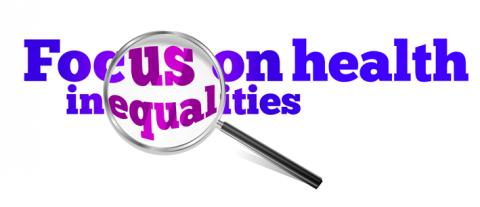Public Health Agency puts ‘Focus on health inequalities’

A month-long programme of events will put the factors that influence individual and community health under a magnifying glass. ‘Focus on health inequalities’ is being led by the Public Health Agency (PHA), with contributions from a wide range of partners in the community, voluntary and statutory sector. It runs from 27 October 2010 and the concluding event is a major PHA conference ‘Meeting the challenge: Economics and a healthier society’, 24 November in Newtownabbey.
Commenting on the ‘Focus on health inequalities’ programme Dr Eddie Rooney, Chief Executive, PHA says
“It is vital that the Public Health Agency, working in partnership with the community and other organisations, continue to address and improve the factors that influence good health and wellbeing. Working together, we need to concentrate our efforts, not only on preventing ill health in the first place, but also by challenging the avoidable and unjust differences in health experienced by the best and the worst-off in our society”.
“The PHA currently funds over 600 community organisations who are working to ‘level the playing field’ and improve the health outcomes for children, the elderly and people from disadvantaged areas across Northern Ireland. We need to build on this excellent work, investing in early interventions and community infrastructure, changing our environment for the benefit of everyone, supporting good health and tackling issues such as obesity, smoking and alcohol abuse.”
“Addressing these concerns is essential for the health and wellbeing of everyone. Making the best use of available resources and keeping people well, by promoting and protecting health and reducing inequalities, will help vulnerable people now and help to alleviate the financial burden on future generations”. He concluded.
The ‘Focus on health inequalities’ programme includes opportunities to consider work with young mothers; school children; on fuel poverty; sexual health; reducing the impact of poverty; suicide prevention; cross border road safety and health economics.
Health Minister Michael McGimpsey said; “This innovative event tackling the issues which impact on health and health inequalities is to be welcomed. This programme will not only highlight the good work already underway with a range of partners from across the health and social care spectrum, it will also facilitate the sharing of best practice in tackling health inequalities.
“In the face of a very difficult spending review it is clear that we all face a huge challenge in ensuring this work is sustained if we are to achieve a fairer distribution of good health.
“I remain committed to investing in ill health prevention right across Northern Ireland and this event provides a platform for these issues to be addressed.”
Contact the PHA Press Office, Ormeau Avenue, on 028 9031 1611.
1. Health inequalities are defined as ‘avoidable and unjust differences in health status by certain population groups’. (Institute of Public Health, 2010)
2. According to the latest figures from the Northern Ireland Health and Social Care Inequalities Monitoring System, the largest inequality gaps between disadvantaged areas and the Northern Ireland average were evident in alcohol and drug related deaths (both more than two times greater than the average, at 121% higher), admissions for self-harm (nearly twice as high as the average, at 94% higher), teenage births (80% higher), suicide (73% higher), respiratory death rates and lung cancer incidence (both nearly two thirds more than the average at 66% and 65% higher, respectively).
3. The costs of Alcohol misuse in Northern Ireland is estimated to be around £680 million annually, this includes costs to healthcare, policing, probation and prison services, social services and work absenteeism, (Social costs of alcohol misuse in Northern Ireland 2008/2009 (2010) DHSSPS).
The annual cost of treatment to the NHS in Northern Ireland for tobacco related illnesses is in excess of £23 million. Smoking related illness kill around 3,000 each year. One million working days are lost due to tobacco related illness. (BMA The human cost of tobacco (2004), Dr Brian Patterson, Chairman of BMA NI Council)
4. The 'Focus on health inequalities' programme contains over forty opportunities to consider the factors that influence health. The programme can be downloaded at www.publichealth.hscni.net
